Mother And Daughter Harassed Amidst Hijab Enforcement Struggle In Iran

A mother and daughter were harassed for donning optional attire in defiance of mandatory hijab, and the young girl passed out after pressure from government agents.

A mother and daughter were harassed for donning optional attire in defiance of mandatory hijab, and the young girl passed out after pressure from government agents.
The incident happened at a metro station in the southern city of Shiraz, when a confrontation took place between authorities and a mother and daughter who were wearing optional attire in defiance of mandatory hijab.
Reports say officers initially obstructed the two females from entering the metro station and this sparked a prolonged verbal exchange. After the intervention of onlookers, the duo circumvented the government agents and gained access to the metro station. However, as they ascended the escalator, the strain of the situation reportedly took a toll on the young girl, and she fainted, losing consciousness.
Bystanders rushed to her aid upon the escalator's deactivation and medical personnel rushed to the scene. Subsequent reports indicate that law enforcement was called upon to disperse the crowd and discourage further filming of the incident.
This occurrence follows a broader pattern of intensified efforts by conservative factions to reinforce hijab adherence throughout Iran and has reignited the ongoing debate over the mandatory hijab rule. This recent wave of protests has intensified following the death of Mahsa Amini in police custody last September, which was a consequence of the morality police campaign targeting women for the removal of hijab.
Historically, individuals found to be contravening hijab regulations have been subject to monetary fines, while repeat offenders potentially faced more severe penalties, including incarceration and corporal punishment. Activism against the mandatory hijab decree also carries significant legal ramifications, including the prospect of prosecution and imprisonment.
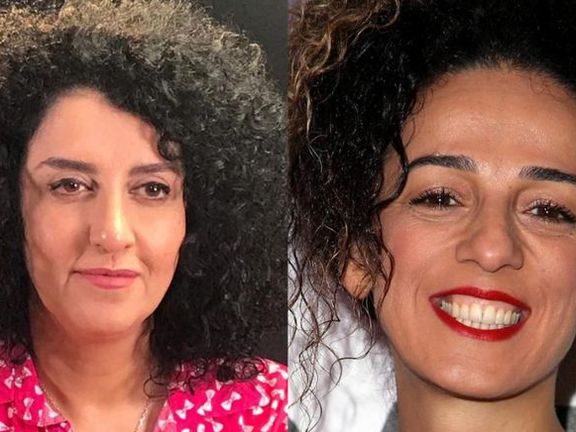
Three Iranians have been nominated for the 2023 Nobel Peace Prize, according to unofficial sources and those who nominated them.
Masih Alinejad, a prominent Iranian activist, has been nominated for her steadfast commitment "to fighting for freedom of expression, democracy, and women's rights in Iran”. Alinejad garnered global attention when Iran's Intelligence Ministry's attempted abduction of an Iranian American journalist was exposed by US authorities in July 2021.
Narges Mohammadi, an imprisoned Iranian human rights activist, has also secured a nomination for her pivotal role in representing the aspirations of countless courageous Iranians. She is recognized as representing hundreds of thousands of brave Iranians, women and men, who are willing to risk everything to bring peace and freedom back in Iran.
Jafar Panahi, a distinguished Iranian film director and screenwriter associated with the Iranian New Wave film movement, has been nominated for his efforts to convey the societal challenges that affect the lives of ordinary Iranians in their everyday lives.
The international peace prize, established in accordance with Alfred Nobel's will, is scheduled to be revealed in Oslo, Norway, in October 2023, with the award ceremony set for December 10.
The Norwegian Nobel Committee disclosed that they received a total of 305 official candidates for the 2023 Nobel Peace Prize, comprising 212 individuals and 93 organizations. While nominations remain confidential, certain Norwegian parliamentarians and academics are permitted to publicly announce their preferred candidates to generate awareness for both the nominee and the nominator.
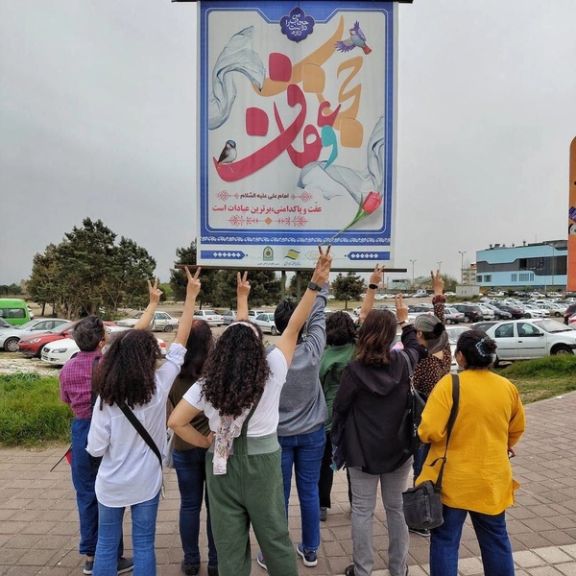
The president of Iran has issued a statement threatening that protests against hijab will soon come to an end.
On Wednesday, Ebrahim Raisi said that protests against the hijab were driven by foreign influence and threatened that the regime would stem the protests by raising awareness and elevating a strategic response, which in reality means that they will crush resistance to the hijab.
"Certain individuals, not adhering to hijab, may lack awareness. Our duty is to raise their awareness,” he said, also citing that “foreign influences are orchestrating an organized campaign to abolish the hijab."
He also referenced Supreme Leader Ali Khamenei's perspective, "As per the leader, enemies have strategized in this domain, necessitating our strategic response in kind". The term "enemies" has been consistently employed by Khamenei to refer to entities such as the United States, Israel, and US allies in the region and in Europe.
Raisi's assertion on the hijab policy is significant given the persistence of Iranian women and girls to challenge the compulsory headscarf. The authorities of the Islamic Republic refer to this defiance as "the removal of the hijab." Furthermore, his remarks come less than two months before the anniversary of Mahsa Amini's tragic death while in custody of the morality patrol.
In July 2022, Raisi took action by instructing all government entities to strictly enforce a "chastity and hijab" law, initially approved by the administration of hardliner Mahmoud Ahmadinejad in 2005. The subsequent weeks saw stringent measures taken on the streets, prompting nationwide demonstrations fueled by the death of 22-year-old Amini.
Nevertheless, in the face of these measures, Iranian women have maintained their increasing resistance against the compulsory hijab enforcement.
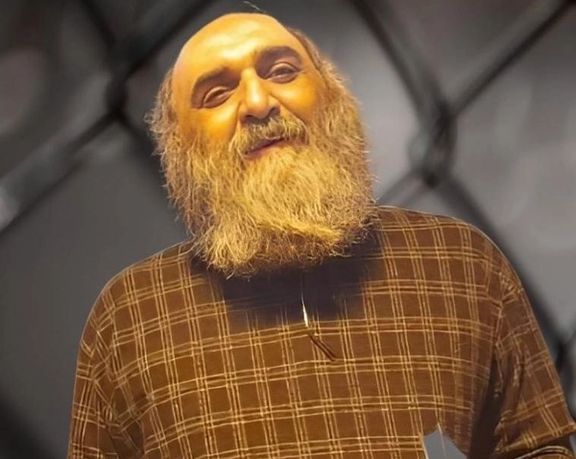
A unified statement from activists, writers, and artists has called for the release of imprisoned poet Habib Mousavi Bibalani and an end to repression.
Mousavi, a notable opposition poet, was apprehended on Monday and has since been detained at Amirabad prison in Gorgan. The charges against him, such as "propaganda against the system" and "disturbing public opinion," have triggered widespread concern among his supporters and peers.
The statement, compiled by over 260 activists, states that rising repression and increased incarcerations signals fatal cracks in the regime. They slammed the incarceration of Mousavi and other activists and said such acts of repression are a sign of the regime losing hold of its oppressive power.
The statement said that writers have historically been primary targets during successive waves of repression and indicated that this is a sign of decreasing grip of authority. “When a political order violates every aspect of the lives of those who produce and distribute ideas and speech... it is an attempt to shut the very last remaining windows of political presence. One can only conclude that this political order itself does not have much hope for retrieving its already lost legitimacy,” the statement reads. It also highlights the eerie resemblance of the regime’s actions in 2023 to the totalitarian regimes of the early 20th century.
Amidst mounting worries about Mousavi's health, the signatories of the statement also draw attention to his numerous medical conditions, including heart disease, lumbar disc issues.
Furthermore, the collective of activists highlighted hundreds of disturbing cases of repression against writers during the Mahsa Uprising, including instances of violence, staged suicides, unlawful detentions, abductions, exiles, psychological and physical torture, intrusive home searches, and intimidation tactics.
Statistics from PEN America's latest Freedom To Write Index reveal a distressing surge in the incarceration of writers in Iran during 2022, compared to the preceding year, reflecting the government's heightened suppression of dissent.
The intensified crackdown on anti-government protests following the tragic death of Mahsa Amini in police custody has led to a deliberate focus on writers, artists, cultural figures, celebrities, and athletes who challenge the status quo.
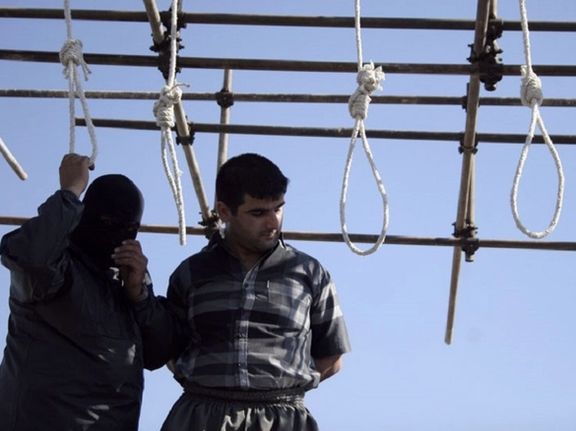
Five men from Marand, in north-western Iran, were executed on Wednesday morning after being convicted of rape.
The defendants were arrested and imprisoned in early June, following their alleged involvement in the gang rape of a woman.
The ISNA news agency reported that Yuosef Ziamehr, Marand's general and revolutionary prosecutor, revealed the details of the case.
“On May 21, 2022, a woman approached the Marand city prosecutor's office and claimed to have been kidnapped by five unknown individuals and forcibly taken to the mountains around the city, where she was subjected to rape by all five perpetrators.”
The law enforcement agents identified and arrested the five defendants within four days of the crime and their subsequent trial culminated in a death sentence, which was upheld by the Supreme Court. The identities of the executed men remain undisclosed.
The timing of these executions coincides with a report from the United Nations High Commissioner for Human Rights, which sheds light on the alarming trajectory of capital punishment in Iran. The report highlights a steep rise in executions, with 582 individuals put to death in 2022, marking an increase of 75% compared to the previous year's figure of 333. Of particular concern is the fact that the 2022 executions included three juveniles.
In 2023, numbers appear to correlate with 2022 with 94 executions recorded in January and February alone.
The report also brings attention to the execution of individuals accused of participating in nationwide protests including those of Mohsen Shekari, Mohammad Mahdi Karami, Mohammad Hosseini, and Majidreza Rahnavard.
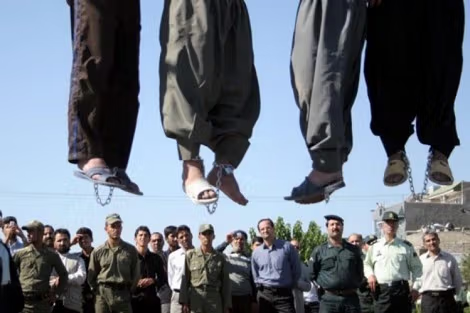
A report submitted to the UN High Commissioner for Human Rights and the Secretary General has called for Iran to halt surging executions and rollback mandatory veiling.
It was among a long list of recommendations in a report submitted last month pursuant to General Assembly resolution 77/228, in which the UN General Assembly requested the Secretary-General to submit an interim report on the situation of human rights in Iran to the Human Rights Council at its fifty-third session.
The report calls for the regime to “immediately halt the execution of all individuals, including those sentenced to death in the context of protests and for drug-related offences, and to refrain from further application of the death penalty”.
This year alone, more than 350 Iranians have been hanged, according to Norway-based Iran Human Rights. The rights group noted it is a 36% increase on the same period last year, likely exacerbated by the ongoing uprising since the death in morality police custody of Mahsa Amini and the subsequent unrest sweeping the country.
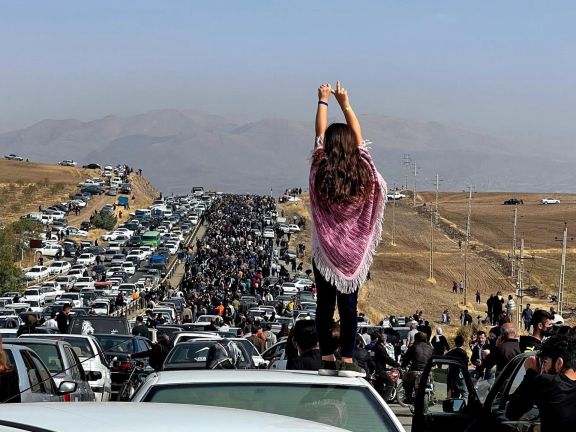
As the trend sees no sign of halting, the UN calls on the regime to “abolish the death penalty and introduce an immediate moratorium on its use and prohibit the execution of child offenders in all circumstances and commute their sentences”.
Referring to the innumerable cases of prisoners detained arbitrarily, including women and girls, human rights defenders, lawyers, and journalists, for legitimately exercising their rights to freedoms of opinion and expression, association and of peaceful assembly, the UN calls on their release. In the 2023 Freedom House report, Iran ranked 12 out of 100 countries for its being “not free”, moving up from 14 in 2022.
Additionally, the UN urged the regime to “guarantee the right of peaceful assembly” and called on the regime to “uphold the full respect for due process and fair trial rights in line with international standards”, including access to legal counsel. Iran refuted the allegations made in the report of a disproportionate response by security forces to the protests.
As internet shutdowns and censorship continue to blight millions across the country, including decimating small businesses which rely on e-commerce, the UN asked that “internet shutdowns are never applied as they inherently impose unacceptable consequences for human rights”.
Addressing the mandatory hijab laws which have most recently seen the return of the morality police to the streets, high level surveillance of the population, brutality and the banning of women from many public places, the UN called on Iran to “take further steps to eliminate all forms of gender-based discrimination and violence against women and girls in law and in practice, including thorough revision and repeal of laws and policies which criminalize non-compliance with compulsory veiling”.
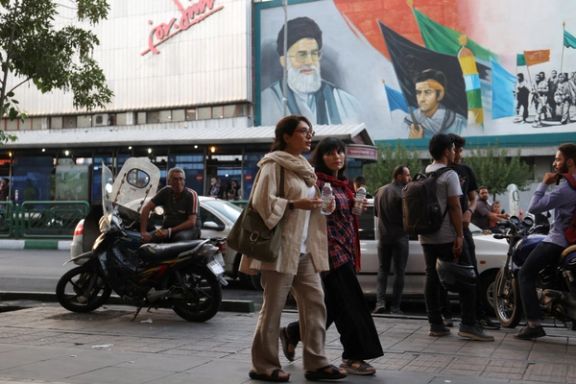
While the hundreds of mystery school poisonings which began last November in Qom and spread nationwide have still got no clearer answers as to the culprits, the UN reiterated the need for an “independent, impartial, prompt, thorough and effective investigation into reported poison attacks on girls’ schools with a view to hold the perpetrators to account; provide full reparations to the victims and guarantee the right to education without discrimination”.
Last month, Viviana Krsticevic, a member of the Fact-Finding Mission on Iran, speaking at a press conference in Geneva said the team, established by the Human Rights Council in November 2022, said: “We have identified major risks of further erosion of women's and girls’ rights in Iran. We have expressed concern about the continuous repression of women and girls opposing forced veiling and their reported use of facial recognition technologies to identify and arrest them.”
The team is also investigating whether alleged poisonings of girls in schools have been orchestrated as a way to punish or deter girls for their involvement in the protests. “Just two months after the protests occurred, a series of alleged poisonings started in dozens of schools in 28 provinces”, added Krsticevic. “Reports said this may have been orchestrated to punish girls or to turn them from involvement in the protests and are being duly investigated in the framework of our mandate.”
Echoing concerns about the proposed use of flogging for those defying compulsory veiling rules, Sara Hossein, Chair of the Fact-Finding Mission, said some of the penalties were “clearly what would constitute inhuman punishment under international law”.
Alongside gender discrimination, the UN also addressed the regime’s continued campaign of repression against minority groups, including the Baha’i community and Iran’s Kurdish population.
The report points out that the regime has still not agreed to join several UN conventions including the Convention on the Elimination of All Forms of Discrimination against Women and the Convention against Torture and Other Cruel, Inhuman or Degrading Treatment or Punishment, emphasizing the need for Iran to conform to international practice.
The Fact-Finding Mission is preparing a comprehensive report on its findings to the Human Rights Council for its 55th session in March 2024.